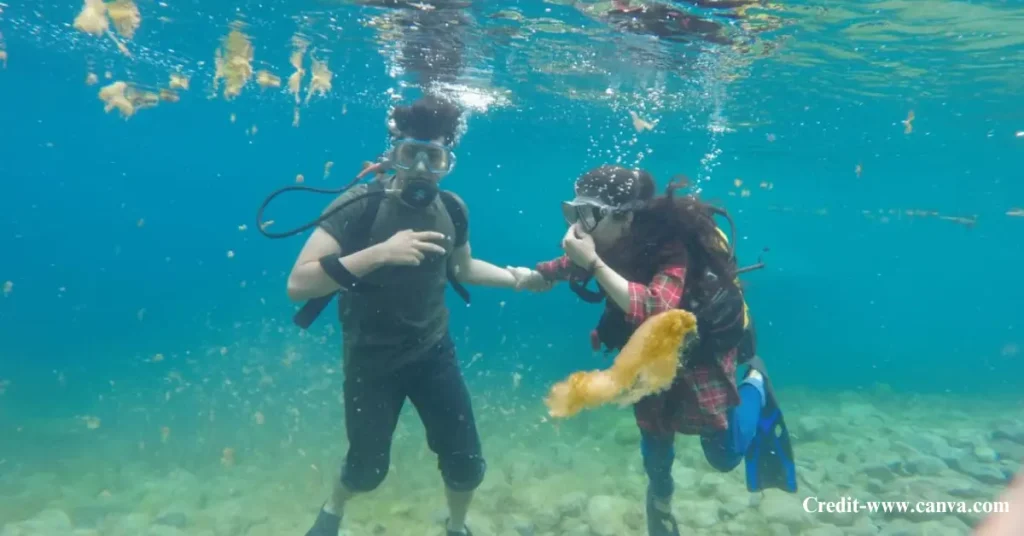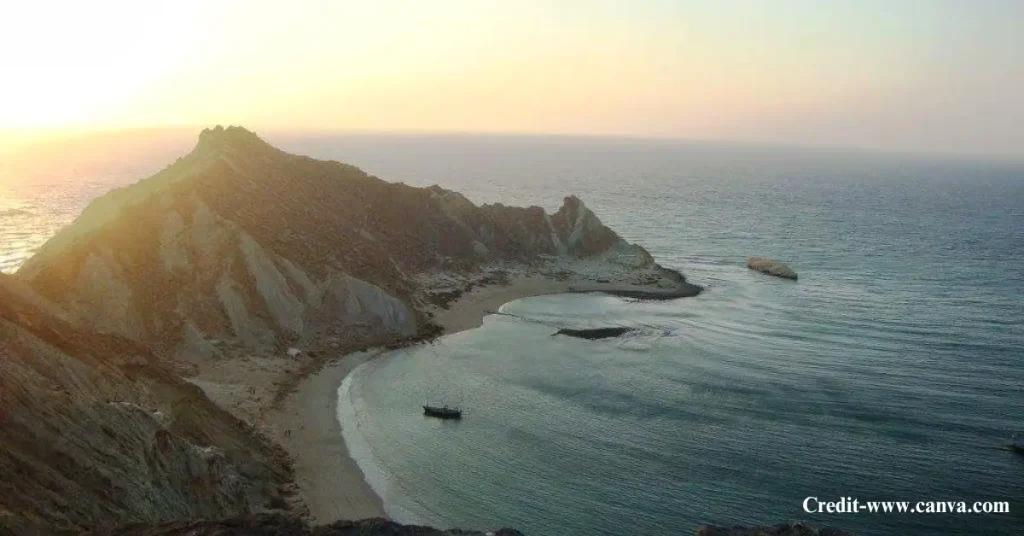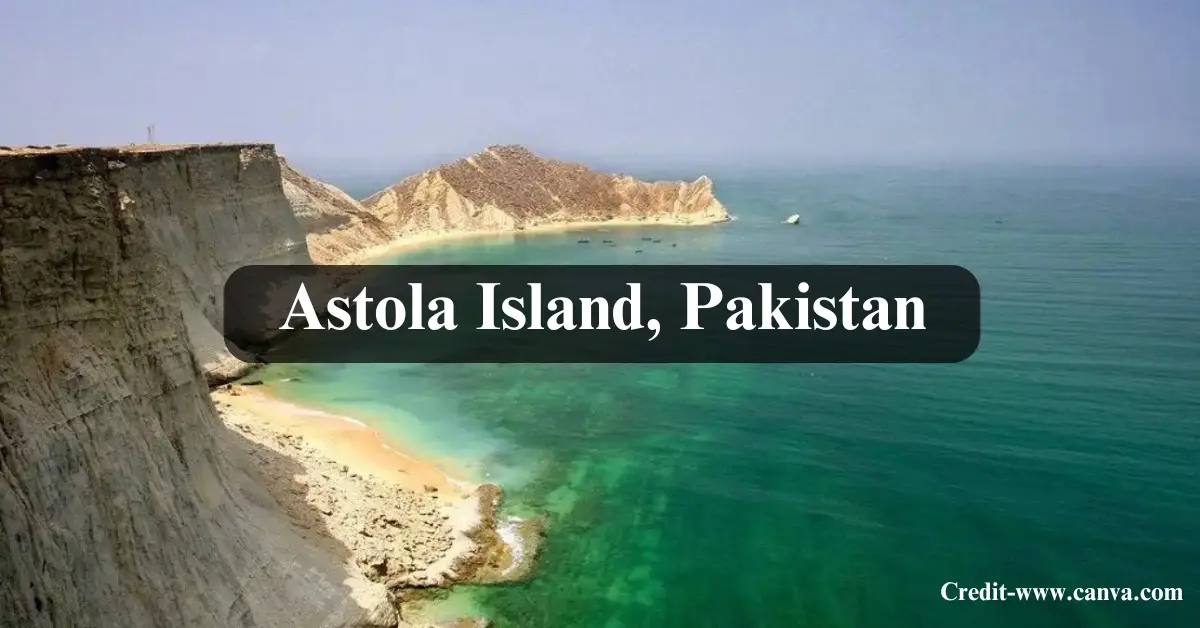Travellers do not expect to find an empty island in the Arabian Sea when they search for travel ideas in Pakistan. Astola Island sits as a rocky, wild place near the Balochistan coast. The island holds no hotels, shops, or many people. Nature operates without human interference there.
Most visitors do not consider it a common picnic spot. A person who likes untouched beaches, coral reefs, or the chance to see green turtles or the Astola viper will find the location good. The island also holds titles like a Marine Protected Area and a Ramsar wetland, which means the island carries importance, so people should not damage it.
Of course, one must plan a trip because Uber does not travel to Pasni. When you take boat trips, camp under the stars, and stay away from seagulls as you drink warm chai, you will experience an adventure.
Table of Contents

Quick Facts: What Makes Astola Island Special?
A land area sits 35 kilometres southeast of Pasni in Gwadar District, Balochistan – it measures about 6.7 square kilometres.
- People call it the Island of the Seven Hills, as it possesses hills.
- Protected Labels: First Marine Protected Area (2017) + Ramsar wetland
- Access: Only by boat—takes about 3–4 hours from Pasni
- Freshwater: None. Bring your own.
This rocky island stands out with its seven sharp hills, wild sea cliffs, and deep coastal waters. No one lives here full-time, which makes the quiet feel even deeper.
Getting There: Boat, Bumpy Roads, and Bravery
Travellers begin in Karachi to get to Astola; they go to Pasni, a fishing town in Balochistan. From that place, a boat travels for three or four hours across the open water.
Some useful tips:
- The sea gets rough during the monsoon season (June to August). The best time to go is between September and May.
- No fresh water is available—pack your own.
- The ride might be thrilling or shaky, depending on your sea legs.
- Local boats are basic. Expect to sit next to fishing nets, crates, or even a goat.
When you go with friends, put light, bright items in your bag. You will want water, food, camping tools, more fuel, a first aid kit, and spare lights. Do not wait until the last moment, because gathering all items requires work, but it pays off.
A Quick Look at History: Hills, Temples, and Old Routes
Astola is more than a coastal stop – it also has a past. An island appears in Arrian’s Indica, which someone wrote when Alexander the Great lived. Back then, it was called “Nosala” or “Carnine” and served as a sea stop on the ancient Ichthyophagoi coast.
Even now, you’ll find:
- Temple ruins, likely tied to the goddess Kali
- A small mosque, used during shrimp season
- A solar-powered lighthouse, guiding ships through the area
- A shrine to Khawaja Khizr, believed to help travellers survive sea storms
The mix of history, belief, and nature makes the island feel old but alive.
Nature’s Playground: Wildlife and Coral Reefs
Here’s where things get interesting.
On Land and Sea:
- Green and hawksbill turtles lay eggs here
- Reptiles found only here, like the Astola viper
- Birds like sooty gulls, coursers, and ospreys are regular visitors
- Feral cats used to be a problem, but most are now gone
Underwater Life:
- A coral reef system full of fish, lobsters, oysters—and yes, humpback whales have been spotted
- A person who snorkels sees vibrant underwater colours in Pakistan. People do not usually expect such colours there.
The island has dry shrubs, like Prosopis juliflora – these plants appear plain, but they provide a place for birds and reptiles to live, rest, and eat.
Protected… On Paper?
In June 2017, Astola was officially named a Marine Protected Area and a Ramsar site under the global wetlands agreement. That sounds big—and it is—but there’s a catch.
Protection on paper doesn’t always mean real help on the ground.
What’s Going Wrong?
- Plastic waste left by boats and careless visitors
- Ghost fishing nets that trap sea animals
- Too much fishing, damaging sea life around the island
- Seasonal waves wearing away the island’s edges
Groups like WWF, IUCN, and the Ministry of Climate Change have offered help. But many locals say there’s not enough regular checking. In simple words, more birds check the place than people.
So, Can You Visit?
Yes—and if you’re ready for simple living and careful planning, it might just be your favourite trip yet.
Here’s what to remember:
- Only by boat: Contact local fishermen in Pasni
- No shops or water: Pack your supplies
- Camping is allowed: Just don’t hurt the wildlife
- Snorkelling is worth it, but bring your mask and fins
- No mobile signal: Think of it as a complete digital break
- Trash: Take everything back with you. Leave nothing behind.
Bring solar lights, a power bank, and paper maps if you can. If you have no signal or backup, readiness is your best tool.
What Most People Miss (But Now You Know)
Most blogs talk about the views and water. Some reports go on about rules and papers. But here’s what people often skip:
- How to prepare for the trip
- Whales and dolphins—they swim near the island
- Local stories like the Kali temple or the Khawaja Khizr shrine
- What it feels like to sleep with no light but stars, and no sound except waves and birds
This blog mixes both parts—the story and the real steps—so you’re not stuck reading just facts or just fluff.
Why Astola Matters
Pakistan doesn’t come up much in island travel lists. But Astola shows why maybe it should.
It’s not just deserts, hills, or cities. It’s got reefs, turtles, old temples, and an almost spooky quiet. For travellers who want something raw and honest, this place checks all the boxes.
If people treat it right and rules are correctly followed, Astola could be a model for eco-travel across South Asia. That’s not just a nice idea—it’s something possible.
And for the traveller?
If you enjoy marine life, have three days off from an office job, or look for something new, Astola offers a memorable experience.

Final Thoughts
Astola Island is not for all people. The place is rough, quiet, and not fancy. But this is why it stands out – it shows no filters. It has no WiFi. You see only water, rocks, animals, and the wind.
If you go, plan and pack with care. Please don’t leave any trace. You will return with tales that most people do not hear.
If you do not go, could you tell someone about it? Perhaps you can help protect the place.

